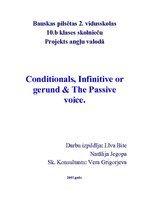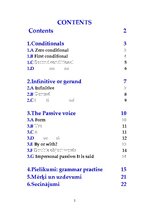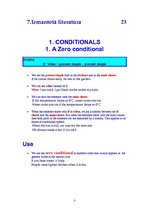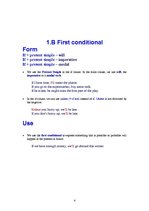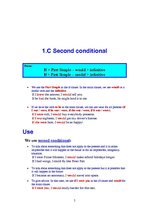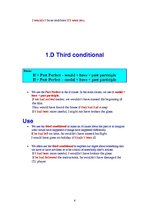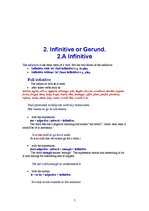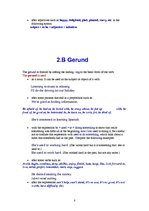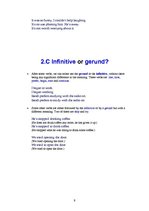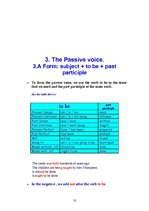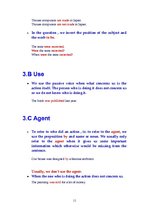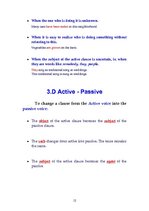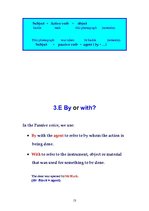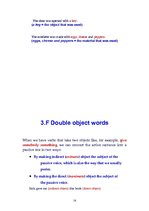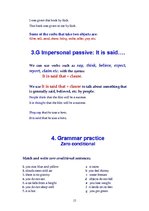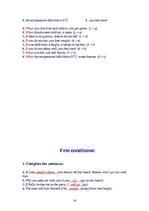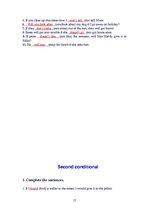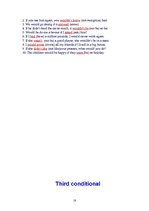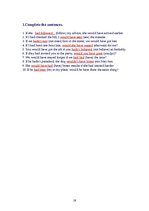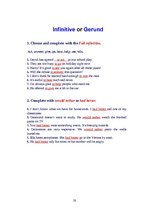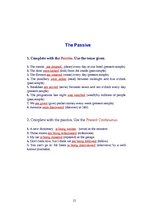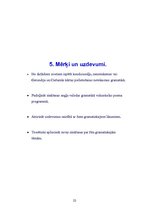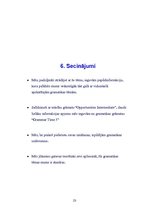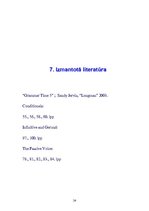-
Conditionals, Infinitive or Gerund & The Passive Voice
| Nr. | Sadaļas nosaukums | Lpp. |
| 1. | Conditionals | 3 |
| 1. | A Zero conditional | 3 |
| 1. | B First conditional | 4 |
| 1. | C Second conditional | 5 |
| 1. | D Third conditional | 6 |
| 2. | Infinitive or gerund | 7 |
| 2. | A Infinitive | 7 |
| 2. | B Gerund | 8 |
| 2. | C Infinitive ar gerund | 9 |
| 3. | The Passive voice | 10 |
| 3. | A Form | 10 |
| 3. | B Use | 11 |
| 3. | C Agent | 11 |
| 3. | D Active-Passive | 12 |
| 3. | E By or with? | 13 |
| 3. | F Double object words | 14 |
| 3. | G Impersonal passive: It is said | 14 |
| 4. | Pielikumi: grammar practise | 15 |
| 5. | Mērķi un uzdevumi | 21 |
| 6. | Secinājumi | 22 |
| 7. | Izmantotā literatūra | 23 |
We use the present simple both in the if clause and in the main clause.
If he comes home early, he sits in the garden.
We can use when instead of if.
When I am tired, I get black circles under my eyes.
We can start the sentence with the main clause.
If the temperature drops to 0°C, water turns into ice.
Water turns into ice if the temperature drops to 0°C.
When the sentence starts with if or when, we put a comma between the if clause and the main clause. But when the sentence starts with the main clause, then both parts of the sentence are not separated by a comma. This applies to all forms of conditional speech.
When the bus is full, we wait for the next one.
We always make a fire if it’s cold.
Use
We use the zero conditional to express a state that always applies, ie. for general truths or for natural laws.
If you heat water, it boils.
People wear lighter clothes when it is hot.
Form
If + present simple – will
If + present simple – imperative
If + present simple – modal
We use the Present Simple in the if clause. In the main clause, we use will, the imperative or a modal verb.
If I have time, I’ll water the plants.
If you go to the supermarket, buy some milk.
If he is late, he might miss the first part of the play.
In the if clause, we can use unless (= if not) instead of if. Unless is not followed by the negative.
Unless you hurry up, we’ll be late.
If you don’t hurry up, we’ll be late.
Use
We use the first conditional to express something that is possible or probable will happen in the present or future.
If we have enough money, we’ll go abroad this winter.
We use the Past Simple in the if clause. In the main clause, we use would or a modal verb and the infinitive.
If I knew the answer, I would tell you.
If he had the book, he might lend it to me.
If we have the verb to be in the main clause, we can use were for all persons (if I was / were, if he was / were, if she was / were, if it was / were).
If I were rich, I would buy everybody presents.
If I was eighteen, I would get my driver’s license.
If she were here, I would be so happy!…

